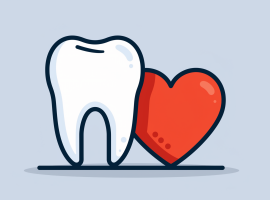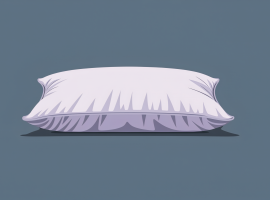Dental Burnout: What to Look For, What to Do About It
Signs of Dental Burnout and Tips for Managing It
January 24, 2025
Reading time: 5 minutes

In this article, dentists will learn how to recognize and manage symptoms of burnout. Burnout can have significant consequences for dentists and their patients, so learning about and identifying potential symptoms can help dentists mitigate risk in their practice. This article recommends actions steps and includes resources for dental burnout.
Key Concepts
- How to recognize burnout as a dentist
- How burnout can affect a dentist’s life and practice
- What to do if you are a dentist experiencing burnout
Every day, you focus on correcting and restoring your patients’ smiles by providing expert dental care. While it’s rewarding work, it can also be stressful and take a toll on you. Not only can it put a strain on your body, but also on your mind. After all, when working as closely with patients as you do, those day-to-day interactions might begin to feel overwhelming or exhausting.
One common consequence of these strains is burnout. Though it’s a well-documented condition, many practitioners fail to recognize burnout or know how to effectively combat it. Let’s consider the signs of burnout and the steps you can take to avoid it throughout your dental career.
Recognize the Signs of Burnout
Burnout has been described as “the accumulation of unchecked and built up stress over a period of time.” However, burnout and stress aren’t the same. Everyone experiences a stressful day or week from time to time, but typically, distancing oneself from stressors and focusing on something more enjoyable can mitigate stress in those contexts. Burnout on the other hand is cyclical; it’s the continual buildup of unmanaged stress that causes psychological and emotional exhaustion.
Do These Symptoms Sound Like You?
Burnout doesn’t just occur in patient-facing work. If you own your practice, you might have to deal with additional stressors, such as managing staff, dealing with issues like insurance payouts, handling concerns over malpractice, growing your patient base, and all the other challenges that come with being a small business owner. In recent years, the pandemic likely put a strain on your practice as well.
While you may not want to admit feeling the signs of professional burnout, chances are your loved ones are noticing them. It can be helpful (and even a relief) to be open and share what you’re experiencing. Think of it as the first step in the healing process. The signs of burnout may include:
- Feeling emotionally exhausted at the end of the day.
- Being quick to anger when patients don’t follow your advice.
- Withdrawing from loved ones as a way of dealing with exhaustion.
- Feeling like work is a burden with no reward.
- Feeling like you want to escape and there’s no way out.
- Considering changing careers or quitting work altogether.
- Obsessing about industry prejudice against your profession.
The Consequences of Burnout
Due to the hands-on and high-stakes nature of dentistry, the consequences of burnout can affect not only you but also your patients. Left unresolved, burnout can lead to emotional distress, lack of motivation, anxiety, and depression. It can also lead to disengagement, negativity, and less successful outcomes in your work. For these reasons, it is important to learn how to recognize the signs and take the necessary steps to avoid and combat burnout.
According to an article from the National Institute of Health, “Dentists are more prone for professional burnout, anxiety, and depression.” Further, the article concluded, “Stress should be considered one of the occupational hazards for dental profession.” Awareness of potential mental health risks in dentistry could be conducive to preventing their onset. That is why many dental organizations and communities, such as the American Dental Association, offer resources to help dentists, new or seasoned, mitigate stress and burnout in their careers.
How to Avoid Burnout as a Dentist
If you’ve experienced any signs of burnout, the first thing you can do is focus on your emotional and physical healing. Burnout among dentists is real and mustn’t be brushed off. Psychologists suggest beginning with rebuilding and maintaining a foundation of basic healthy behaviors including:
- A nutritious diet and good hydration.
- Adequate sleep and limited screentime.
- Time for fun with family and friends.
- Time to relax and free your mind.
Once your foundation is strong, consider these strategies to help you avoid burnout:
- Thought exercises: Ask yourself questions like “what do I want, what don’t I want, and what needs to change?” without worrying about the life and career expectations you’ve set for yourself. Write down your answers and/or explore with a loved one.
- Anger management: Talk honestly about what “gets to you” and why. Letting go of pent-up feelings instead of holding them in might help you better understand your emotions and how to regulate them.
- Transparency: Don’t be ashamed to express your feelings, fears, and dreams to your loved ones. They want to listen and support you.
- Seeking professional help: It’s never a sign of weakness to seek the help of a counselor or mental health professional. Talking to an unbiased third-party can help you gain the clarity and direction you need to overcome burnout and move forward.
An important aspect of any job, especially in a healthcare profession, is work-life balance. Make time to explore your hobbies, spend time with your loved ones, and properly rest outside of work. Work-life balance is crucial not only for your mental and physical health, but also for stability and longevity in your dental career.
By taking time to focus on your own well-being, you’ll better serve your patients and yourself. The burnout healing process might even embolden you to rediscover the reasons you chose your profession in the first place and give you a fresh perspective on your work.
Get the Practice Protection You Need
We hope you’ll give these burnout tips for dentists a try.
Ready to act against burnout and stress in your dental practice? Begin by securing the very best malpractice insurance to protect yourself from the strain of claims. Reach out to our team here at MedPro Group to review policies and discuss risk management strategies that can help you practice with more confidence.
Additional Risk Tips content

How to Stay Passionate in Your Dental Career
Insights on sustaining passion in a dental career through education, community support, work-life balance, and meaningful patient relationships.

Clindamycin Side Effects Lead to Dental Malpractice Lawsuit
A dental malpractice case reveals the risks of clindamycin, informed consent gaps, and the impact of non-clinical staff advice on patient safety.

Dental Malpractice Risks in Treating Obstructive Sleep Apnea
Learn how a dentist’s OSA treatment led to malpractice claims. Explore legal risks, informed consent strategies, and key lessons for dental professionals.
This document does not constitute legal or medical advice and should not be construed as rules or establishing a standard of care. Because the facts applicable to your situation may vary, or the laws applicable in your jurisdiction may differ, please contact your attorney or other professional advisors if you have any questions related to your legal or medical obligations or rights, state or federal laws, contract interpretation, or other legal questions.
MedPro Group is the marketing name used to refer to the insurance operations of The Medical Protective Company, Princeton Insurance Company, PLICO, Inc. and MedPro RRG Risk Retention Group. All insurance products are underwritten and administered by these and other Berkshire Hathaway affiliates, including National Fire & Marine Insurance Company. Product availability is based upon business and/or regulatory approval and/or may differ among companies.
© MedPro Group Inc. All rights reserved.